Best Biotech Sci-fi
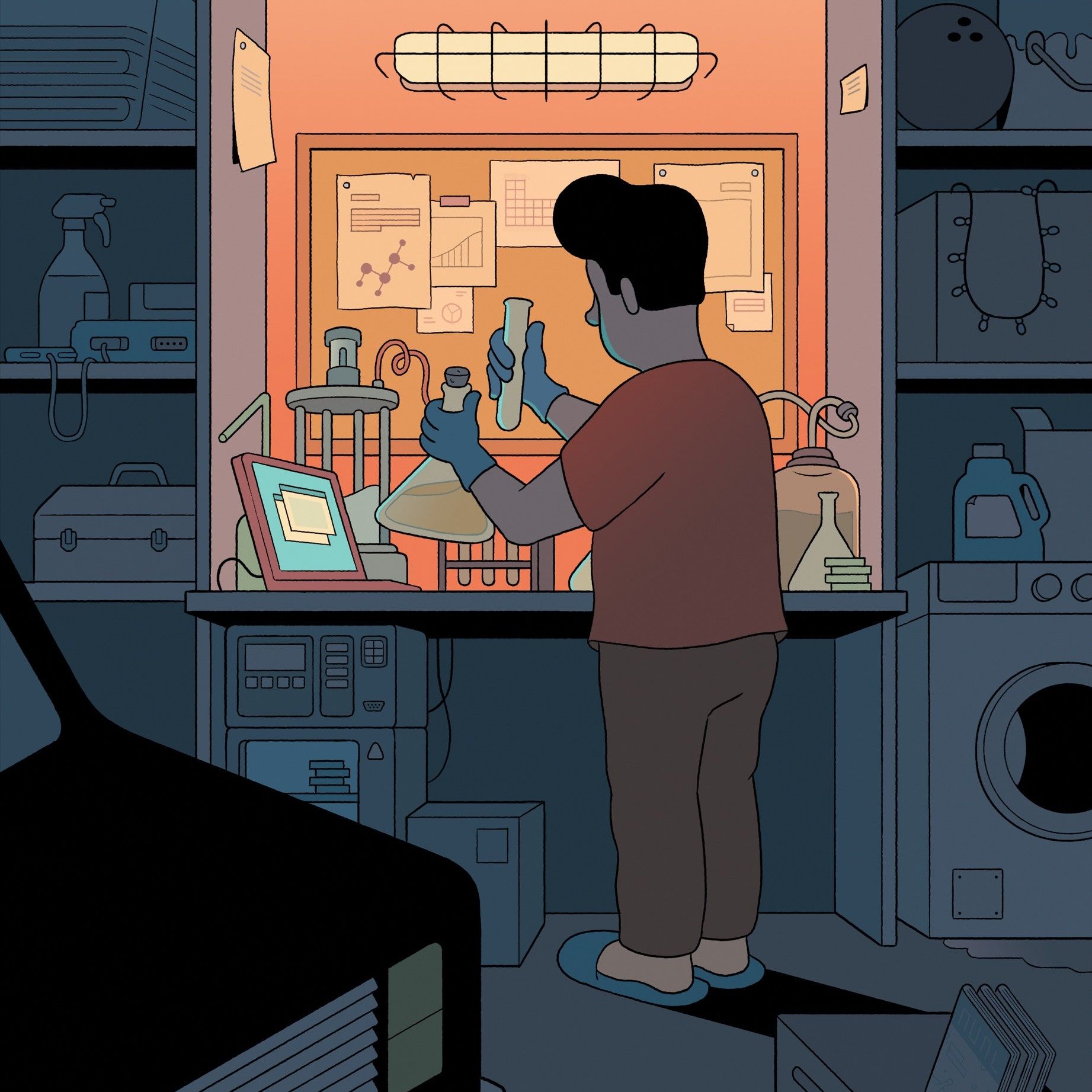
I find myself writing this list out in an email to someone every six months, so I figure I should write it down somewhere!
I have been reading sci-fi my entire life and get a lot of joy from it. Some of it is from the "pew pew!" of Star Wars and other sci-fi "genre" work. But I have also formed some of my deepest convictions about the world and my work in it from sci-fi. These works usually fall into a category Margaret Atwood and others have called "speculative fiction" – work that pushes already existing technological, economic, and political ideas to an end conclusion in fictional ways that illustrate a point about the world we live in and what we should do while we're here. As you'll see, many of the books below planted ideas that would later grow into Opentrons, not least by convincing me how necessary it is to democratize the means of producing powerful biotechnology before it's too late.
By the way if you're going to buy any of these I suggest Bookshop.org. Excellent co-op of independent bookstores into a nice e-bookseller.
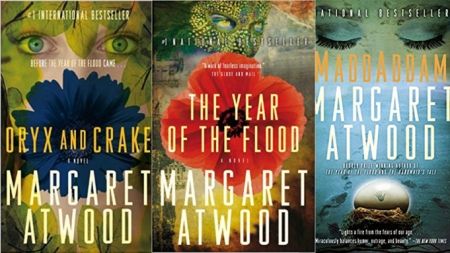
MaddAddam Trilogy by Margaret Atwood
The three books Oryx and Crake, The Year of the Flood, and MaddAddam, contain a hilarious and heart-wrenching biotech apocalypse. Post- climate catastrophe, the bleak world built here is run by CorpsSecCorps and walled-off autonomous bio-pharma and big media trans-national corporations. It is a tale of hubris and failure, but also the inexorability of hope and life regenerating after crisis.
Sitting in 2021, some of the predictive calls she made writing this starting in 2005 were 10/10 crystal ball moments. "Pigoons" is happening already, with a few companies showing successful product launches transplanting vital organs from GMO pigs into humans. "Chickie nubbins" represent lab-grown meat, aka cell agriculture, which has taken over mindshare in techno-optimists' minds much as Atwood predicted. And DIY, extra-organizational activists around the world are surging together to catalog the genetics of species going extinct faster than we can list them. Yet the tools of creating biotech utopia are focused instead on prolonging the cosmetic shelf-life of the wealthy, curing only diseases of narcissism.
To me, this is a must-read for anyone who thinks about how to use biotechnology to "make the world a better place," and wrestles with the difficult ethical questions tied up in doing that well. Plus, it is a joy to read and going to be a Hulu series soon, so read it before everyone else knows it's cool!
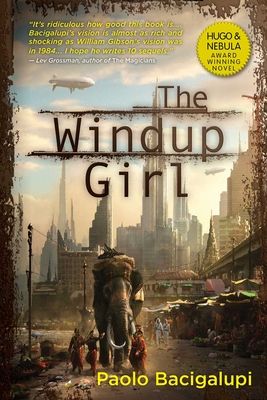
The Windup Girl, Paulo Bacigalupi
Joules from fuels are a thing of the very distant past, and the only energy available anymore are the calories eaten by bio-engineered beasts that serve as power-plants. But the Calorie Corporations in Des Moines own all the genetic information for every vital crop in the world, and are actively releasing bioengineered plagues to destroy rival food-crops and maintain their monopoly over global calorie availability. Only the Kingdom of Thailand remains with its own seed vault, and the independence from genetically engineered tyranny that it provides – for now. This is a noir thriller about genetic corporate sabotage and how the same lines of oppression so starkly present in today's global society – between gender, class, race, etc – are reflected in the funhouse mirror of monopoly biotech used to suit the dreams of only a powerful few.
If the MaddAddam Trilogy represents the 'Big-pharma Apocalypse' version of our collective Biotech Bogeyman scenarios, this one – compellingly! – is the 'Monsanto Global Fascism' scenario. Bacigalupi's work on this thought experiment is first built out and most intensely imagined in The Windup Girl, but is also core to his first book of short stories, Pump Six, and the YA trilogy Shipbreaker, Drowned Cities, and Tool of War. In each of them he centers character development on genetically engineered more-than-humans that have been created as tools for their masters but also exist as independent spirits.
To me, these are a pretty direct warning call for about allowing the means of producing sophisticated biotechnology to be monopolistically controlled by big corporations. The new forms of oppression they provide are truly terrifying, and any resilient society must ensure The People control their biotech destiny.
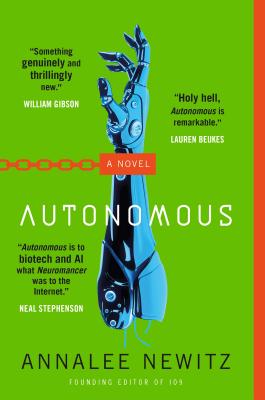
Autonomous, Annaleee Newitz
A zeitgeist-capturing underdog adventure story about a badass pirate with a submarine biotech lab. The lead protagonist here is exactly who I hope will be using Opentrons robots way out into the future: someone making biotech accessible outside of monopoly strangleholds. But this story is also as much about AI as it is about biotech, with big questions around individual choice and everything's interconnection with everyone. What makes an individual anyways?
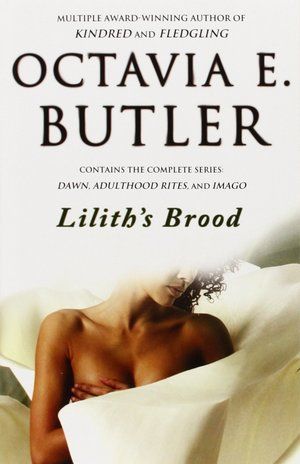
Lilith's Brood, Octavia Butler
Biotechnology is just as scary, weird, and wonderful in this amazing work as any of the others on this list, but the premise is refreshingly flipped and reversed. What if, instead of accentuating all the terrible things we do to each other, biological engineering could be a source of one-ness and social cohesion? The very way we escape the worst sides of humanity? Its hard to say too much about this one without doing big spoilers, but some buzzwords: alien bio-planet seeks genetic singularity with all life in the Universe, and one woman is the key.
Lilith's Brood is actually the three books of the Xenogenesis Trilogy, Dawn, Adulthood Rights, and Imago, all put in one large copy. I read them separately, but I think putting them all together is the best way to dive into this one – deep and head first. Octavia Butler is always so rewarding to read, though also always challenging emotionally for me – she is such a powerful writer dealing with really deep, fraught stuff. But the lessons she gives are too deep to be earned without some pain. Her ideas are so powerful, there there are many people who have taken political action based on her fiction (check out Emergent Strategy for one such a political strategy book that will also rock your paradigms). If you're looking for a story that stretches your heart, pushes your mind, and reframes biotech completely, this will be a treat for you.
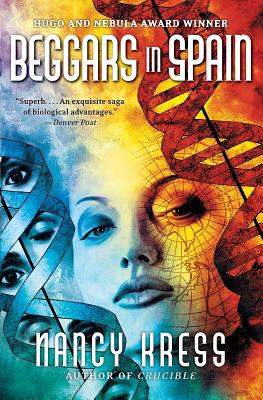
Beggars in Spain, Nancy Kress
This is the Designer Babies scenario played out over global historical scale. The first are kids that their parents made beautiful – and sleepless. They don't have the pesky evolutionary quirk of needing to spend ~8hrs per day unconscious, so, naturally, they excelled in school and extra-curricular activities. Fast forward 100 years, and there is a genetically designed super-race trying to control the globe from the moon, while luddite anti-biotech movements try to dismantle society and build anew. It's a romp! And a warning about how class structures in society can become genetically encoded into our biology if we're not careful in our attempts at self-improvement.
Make sure you read the full novel Beggars in Spain, not the novella that it was first published as. Otherwise, like I was before going back to the full novel, you'll be missing crucial context / spoilers when you continue with the second and third books in the trilogy, Beggars and Choosers and Beggars Ride.
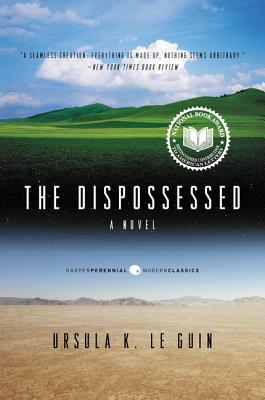
The Dispossessed, Ursula K. Le Guin
OK, not biotech, but certainly a parable of open-source technology (and my favorite novel). This is an astonishingly beautiful thought experiment of actually existing anarchism as Le Guin saw it – no private property, very "from each according to their ability to each according to their need" with all the good and bad parts. I will always remember the first time I read several profound scenes from this book, like the one where the children learn about what a prison is for the first time, having never heard the concept in their world without cells and police. The world here is not utopia, exactly – there are warts and hardships and tragedies aplenty. But there is also glorious and fundamental freedom. This book's protagonist exemplifies the highest standards of ethical invention I have encountered, and there are vital lessons for anyone at the cutting edge where technology meats society.
The Left Hand of Darkness is a more bio-sci-fi Le Guin novel exploring gender and sexuality in the context of intergalactic diplomacy and intrigue. It is also an amazing love story, and highly recommended.
There are a lot more books that fall under the category of biotech sci-fi, but I either have not read them or they didn't make this list. But let me know if you think I am missing out on something really awesome, please!
